Customer Services
Copyright © 2025 Desertcart Holdings Limited


High Performance Python: Practical Performant Programming for Humans [Gorelick, Micha, Ozsvald, Ian] on desertcart.com. *FREE* shipping on qualifying offers. High Performance Python: Practical Performant Programming for Humans Review: Excellent book - This book is a hidden gem. It explains in-depth methods for how to profile your Python programs, how to use different compilers for python code to gain speedups, how your code gets interpreted and how it interacts with the underlying computer architecture, how to write async code and parallel code in python, how to conserve RAM and many more topics and concepts. Each one of the concepts that this book teaches had a lot of work and effort put into by the authors. Wether it's the text or the code examples, the quality is high. The book is written in a way that you can read it in a linear fashion but it can also serve as a reference once you know where everything is. The authors of this book are very talented and experienced python developers with background in data science. In addition to showing many advanced methods for making your code fast, they put a strong emphasis on when/where to use each method and the importance of profiling and benchmarking. This book is probably a better read for people with an intermediate understanding of Python, operating systems and parallel programming. It uses very interesting and high quality problems as examples (warning, they are not always easy to understand). I highly recommend this book to anyone who has been using Python for a few years and wants to take their understanding of the language to the next level. Review: It might look old but the information is very new - This book is filled with modern knowledge on how to use python with multiprocessing and asynchronous methods. Expect to learn new information upon purchase and to keep it around long into Python 3 maturity.

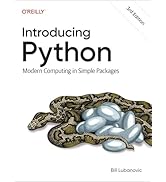
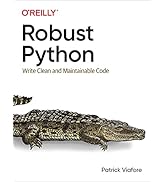
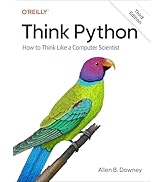
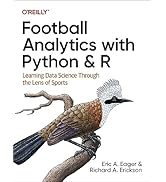
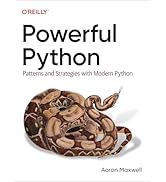
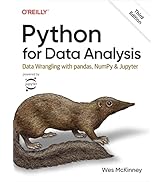
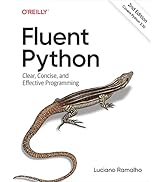

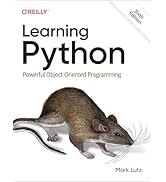
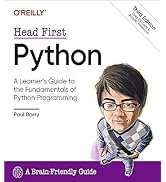

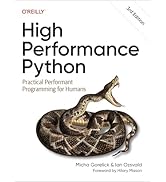
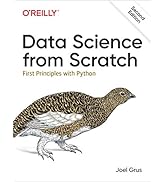
| Best Sellers Rank | #485,094 in Books ( See Top 100 in Books ) #14 in Computer Performance Optimization #392 in Python Programming #478 in Software Development (Books) |
| Customer Reviews | 4.7 4.7 out of 5 stars (203) |
| Dimensions | 6.75 x 1.25 x 9 inches |
| Edition | 2nd |
| ISBN-10 | 1492055026 |
| ISBN-13 | 978-1492055020 |
| Item Weight | 2.2 pounds |
| Language | English |
| Print length | 468 pages |
| Publication date | June 9, 2020 |
| Publisher | O'Reilly Media |
P**E
Excellent book
This book is a hidden gem. It explains in-depth methods for how to profile your Python programs, how to use different compilers for python code to gain speedups, how your code gets interpreted and how it interacts with the underlying computer architecture, how to write async code and parallel code in python, how to conserve RAM and many more topics and concepts. Each one of the concepts that this book teaches had a lot of work and effort put into by the authors. Wether it's the text or the code examples, the quality is high. The book is written in a way that you can read it in a linear fashion but it can also serve as a reference once you know where everything is. The authors of this book are very talented and experienced python developers with background in data science. In addition to showing many advanced methods for making your code fast, they put a strong emphasis on when/where to use each method and the importance of profiling and benchmarking. This book is probably a better read for people with an intermediate understanding of Python, operating systems and parallel programming. It uses very interesting and high quality problems as examples (warning, they are not always easy to understand). I highly recommend this book to anyone who has been using Python for a few years and wants to take their understanding of the language to the next level.
A**X
It might look old but the information is very new
This book is filled with modern knowledge on how to use python with multiprocessing and asynchronous methods. Expect to learn new information upon purchase and to keep it around long into Python 3 maturity.
V**N
All you need to know about performance and memory optimization in Python
A very comprehensive book that covers the memory and performance of Python. Even though the book's title contains "performance," it also has a chapter on memory management. Book has excellent and up to the point examples.
J**O
Good book
I’m learning a lot and half way through the book. I’ve written some python before but primarily an expert C++ programmer. Ironically I ordered a more fundamental python book and it’s stuck in the mail but still finding this book very understandable.
W**W
Issues with the cover
The cover should be a Reticulated Python. They are the highest performance python.
M**E
Great book
Good read
S**X
Good information, way too long, weird writing style
Good: The book does a nice job covering multiple aspects of speeding up Python code, as well as reducing memory usage, etc. Good examples with test results of different approaches. Not so good: The book is probably twice as long as it should be. There's a ton of filler in here, like the odd opinion notes about hard it is moving code to a cluster, or using multiprocessing. The final section appears to be random thoughts about Python code, and has nothing to do with performance. Also, the writing style is just simply weird. I was reading along about some topic, and all of a sudden the text says, "Ian doesn't like to have his laptop set up so that ...". I thought, "Who is Ian?, and why would I care about his opinion?" Well, it turns out he's one of the two authors. This approach is used multiple times, and boy is it jarring - such a weird way of writing, especially in a technical book. That said, if you can wade through the strange writing and ignore all the useless fluff, there is some good content in this.
Y**A
Very good
Thank you
A**R
It's a great book with useful information. It will take your understanding of Python's internal workings, memory allocation and how to use better performance libraries. The only down side to this book is I found some of the examples to verbose and unnecessarily complex for the point being proven. Someone who isn't into data science as much may find the example arduous.
R**Y
The quality control can be better
C**T
Well some of the information in this book is a bit old by now, most of it is still very relevant. How to keep your memory use low, how to avoid costly operations like allocations and file reading and writing. Also very useful for general profiling of your code. Changed the way I look at writing code.
J**A
Kwik word of advice. Do not expect this to be a easy read. Buy a notebook and some pens because you will be taking notes. If you are a beginner in Python programming wait a year or two before reading this.
R**A
Sono ancora sotto le 100 pagine di lettura ma gia' dall' inizio si percepisce una qualita' superiore rispetto ad altri manuali sul python. Utilissimo il sito github per scaricare i sorgenti e fare prove in locale. Pienamente soddisfatto.
Trustpilot
1 week ago
1 month ago